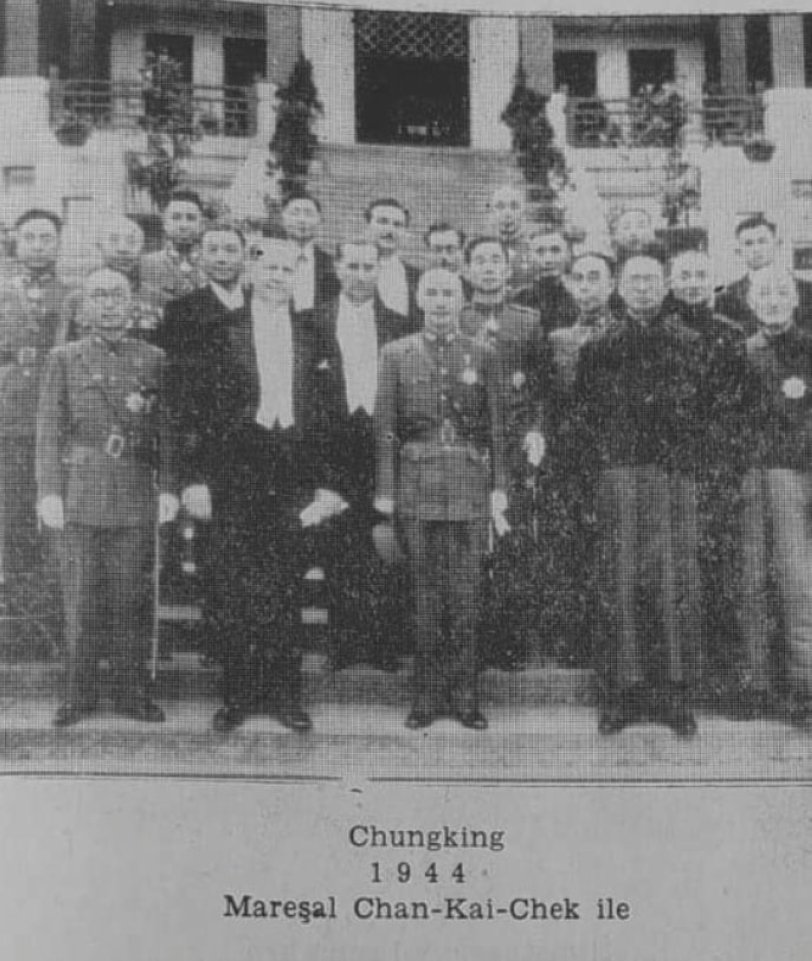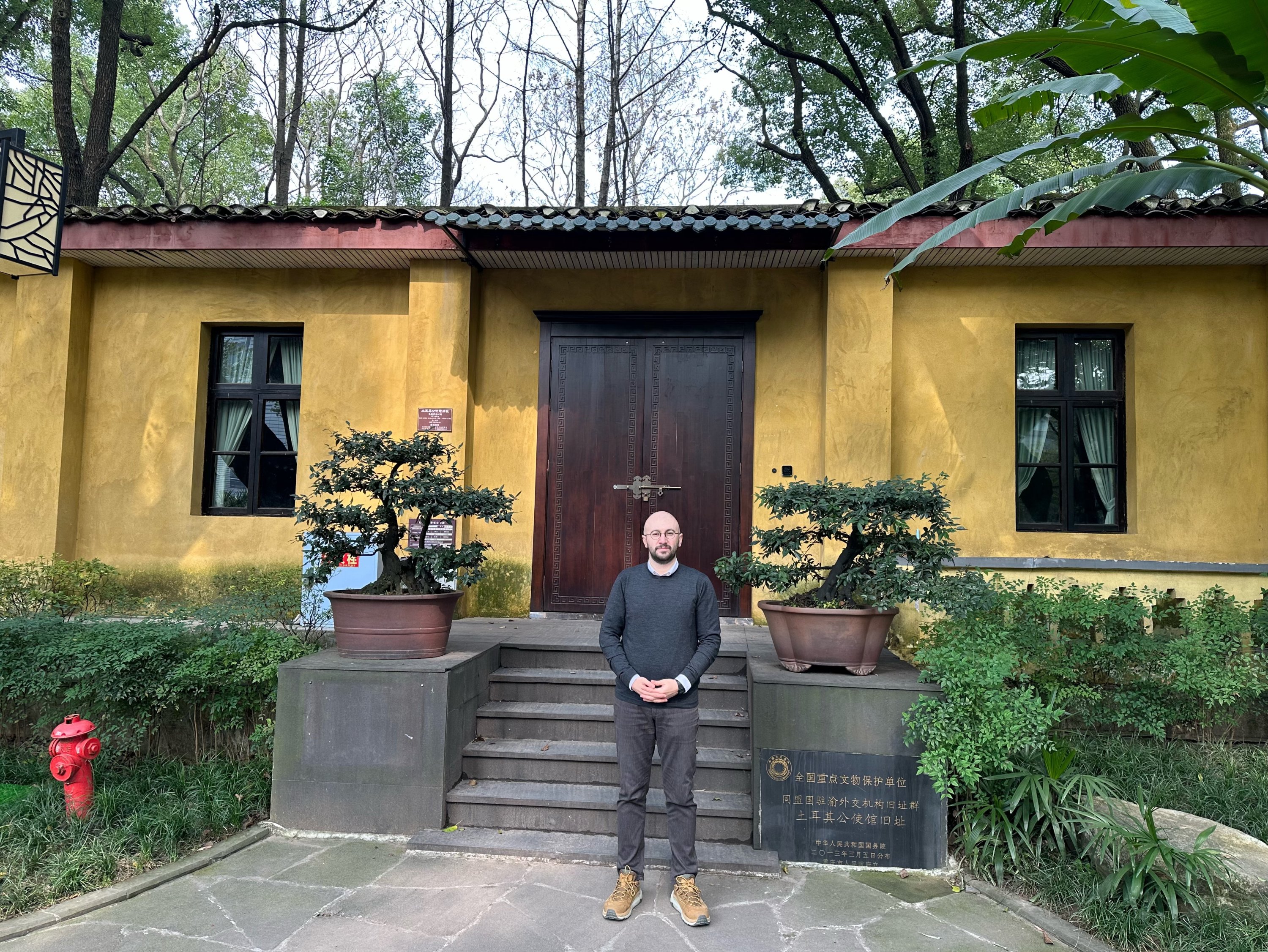© Turkuvaz Haberleşme ve Yayıncılık 2026
In my previous opinion article, I explored the city of Nanjing – a place where the soul of China intertwines with the roots of modern Turkish diplomacy, captivating visitors with its rich history and dynamic present, echoing stories of both triumph and tragedy. Today, I turn my focus to Chongqing, a city of monumental significance, drawing insights from my readings and my recent visit during the early days of the Chinese New Year (Year of the Snake) in January 2025 – a year symbolizing resilience and renewal. In doing so, I aim to shed light on the challenges and perseverance of Turkish diplomats stationed in Chongqing during one of history's most trying periods. Taking the same route from Nanjing to Chongqing, albeit under vastly different circumstances, I couldn't help but feel a connection to the emotions of those diplomats in the 1930s. Though separated by time, the journey evoked a shared sense of purpose and reflection on the enduring ties between past and present.
Previously, I discussed how, during the years 1937-1945, China faced both the Japanese invasion and internal challenges. During this period, the Chinese government relocated its capital from Nanjing to Chongqing. The Turkish Embassy in Nanjing was closed in 1931 and reopened in Chongqing in 1939. This historical context explains why there is a Turkish Embassy in the western part of China.
The Turkish Embassy was situated in Chongqing's Eling Park. For those interested in visiting this historic site, the address is as follows: 176 E'ling Main Street, Yuzhong District, Chongqing City. Unlike the former embassy building in Nanjing, the Chongqing embassy features an introductory plaque at the gate. The building was constructed during the Republic of China era and covers a land area of 477.3 square meters, with a building area of 187 square meters. The structure is a Western-style single-story house with a brick-wood framework.
In December 1939, the Turkish Legation began operating from this location. In May 1943, it was upgraded to the status of an embassy. In May 1946, the Turkish Embassy officially relocated from Chongqing.
Although the introductory plaque offers a selectively curated perspective, it still reflects the historical context. The inscription states: "The historical plaque on the site acknowledges Türkiye’s role in supporting China’s resistance against Japan, the establishment of diplomatic ties and Türkiye’s eventual severance of relations with Japan in 1945."

Following the occupation of Northeast China and the establishment of the puppet state of Manchukuo, Türkiye supported the League of Nations and signed a friendship agreement with China in 1934, advocating for China's territorial integrity against Japanese occupation.
China's interest in establishing closer ties with Türkiye was not met with a reciprocal diplomatic effort, leading Envoy Ho Yao-Tsu to leave his post and return to China, where his position was downgraded to a charge d'affaires. Upon his return, Ho Yao-Tsu voiced his disappointment, criticizing Türkiye for failing to provide the level of attention that China had anticipated. This diplomatic tension caught Ankara's attention during the 1939 visit of Isa Yusuf Alptekin, who represented the Chinese government. Alptekin conveyed that Türkiye's reluctance to appoint an ambassador to China, despite China's diplomatic outreach, had caused dissatisfaction within Chinese circles. In response, on Sept. 4, 1939, the Ministry of Foreign Affairs proposed the appointment of Emin Ali Sipahi, a distinguished legal advisor, as Türkiye’s minister plenipotentiary to the Chinese government. Emin Ali Sipahi arrived in Chongqing a few months after his appointment, in December. Shortly thereafter, he presented his letter of credence and officially commenced his duties.
On Dec. 28, the Executive Yuan hosted a dinner in honor of Turkish Ambassador Emin Ali Sipahi at the presidential office. The event was attended by government and foreign affairs representatives, military officials and the mayor. On Dec. 29, a banquet was held in honor of the Turkish Embassy, hosted by Marshal Chiang Kai-shek and his wife Soong Mei-ling. Senior government officials, including the vice president of the executive and the minister of foreign affairs, were also present. Chiang Kai-shek expressed his condolences regarding the Erzincan earthquake, which had recently occurred on Dec. 27, 1939. By a remarkable coincidence, both Sipahi's wife and Chiang Kai-shek's wife were graduates of the same school, fostering a warm and amicable connection that strengthened diplomatic relations.

Türkiye’s first embassy in China continued to operate at the charge d'affaires level under the leadership of Tebelen Abdül-Mennan until Sept. 17, 1943. In 1943, Türkiye and China mutually upgraded their diplomatic representation to the ambassadorial level. As a result, Ahmet Hulusi Fuat Tugay was appointed as the first Turkish ambassador in Chongqing in 1944.
Tugay later established a close relationship with Chinese leader Chiang Kai-shek. On June 12, 1944, Tugay formally presented his credentials to Chiang. The Chinese president spoke highly of both the ambassador and Türkiye, expressing his admiration in a particularly cordial manner.
During Tugay’s second tenure in China, his engagement with Chinese Muslims was widely noticed. In a letter written by Osman Derinsu, the third secretary at the Turkish Embassy, it is noted that Tugay was actively involved in addressing matters concerning the Chinese Muslims. Notably, in one of his meetings with Chiang, he personally raised these issues, highlighting their significance in Türkiye-China relations.
During the years 1944-1945, Turkish foreign policy adhered to a stance of neutrality. Despite the ongoing Japanese invasion, Tugay chose to remain in Chongqing. Archival documents indicate that Turkish diplomats were operating under wartime conditions.
Following the end of the Japanese occupation, Türkiye’s diplomatic mission relocated back to Nanjing. The former embassy site remained a key historical landmark and was restored in 2016, transforming into a public museum.
Chongqing stands as a symbol of Türkiye’s diplomatic engagement with China during a critical period. Despite wartime challenges, Turkish diplomats upheld their mission while maintaining Türkiye’s neutrality. The preservation of the former Turkish Embassy site reflects the lasting significance of these early diplomatic efforts as Türkiye and China continue to strengthen their bilateral ties.
